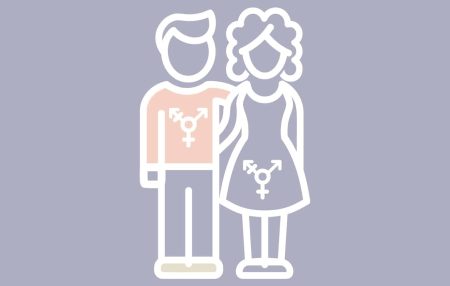1 June 2020
The Covid-19 pandemic has been characterised as a public health crisis, resulting in population lockdown and unprecedented restrictions. The scale of disruption, change and loss caused by this global pandemic is only just beginning to unfold. Our response to this emergency has intensified the need for increased centralisation and inter-connection of healthcare and fertility treatment, science and genomics, digital and artificial intelligence technology, economics and law and policy.
Socio-economic picture
In the UK, we have so far seen approximately 38,500 recorded deaths arising from the Covid-19 pandemic. Unemployment benefit claims in the UK went up by 856,500 in April 2020 to 2.1 million according to the Office for National Statistics. The US has seen over 100,000 dead and 35 million job losses, representing nearly a quarter of the US workforce. The true scale of death and job losses in China caused by the pandemic is difficult to assess, although the official death rate stands around 4,600 and the urban unemployment rate in March 2020 was 5.9% representing around 27 million out of work.
Many UK staff have been furloughed in sectors forced to shut down during the pandemic including retail, leisure and hospitality. This has caused severe disruption to business activity and wealth creation across the UK and young people, women and the low-paid have been the most affected by lockdown. The collapse of air travel has seen Rolls-Royce, Easy-Jet and British Airways announce thousands of job cuts, although we have seen increased vacancies in supermarkets and some online businesses.
As a result of this crisis, we are experiencing unprecedented levels of change and uncertainty in terms of our daily lives, hopes and plans for the future.
Personal and family life and conception
The Covid-19 pandemic is significantly impacting our personal and family lives and our family building arrangements. Whilst this pandemic is strengthening some relationships, it is placing intolerable strain on others. Current restrictions are also making it more difficult to build meaningful new relationships or take the next step with a loved-one.
As we navigate through this pandemic, it is more important than ever to take care of the legal and practical aspects associated with our personal relationships, children and families. We need to take time to understand and proactively manage the legal, financial and practical issues and implications associated with conceiving a child or ending a relationship in this rapidly evolving landscape. There are now all sorts of additional issues for those seeking assisted conception and even more so for those seeking cross-border treatment given current international travel restrictions. Family building arrangements involving surrogacy, known donation or co-parenting in particular carry greater levels of risk and uncertainty. Careful thought and planning is needed to ensure that loved ones and children are catered for if there is an unexpected death in the family. Fertility patients and prospective parents also need to give careful thought to fertility preservation and what will happen to their eggs, sperm or embryos comprising these if they contract Covid-19 and become incapacitated or pass away.
Healthcare and fertility
Without a vaccine and effective medication, we are vulnerable to new outbreaks and face ongoing restrictions. The Covid-19 pandemic has caused the temporary suspension of many healthcare services in the UK as we have sought to ‘flatten the curve’ of cases requiring urgent hospitalisation and ‘protect our NHS’. UK fertility treatment services were temporarily suspended on 15 April 2020, although UK fertility clinics have been able to re-open since 11 May 2020. There are also mounting concerns that we will encounter a wave of additional health problems, loss of life and options as operations and medical treatment are postponed, waiting times increase and we take longer to diagnose new conditions. This raises all sorts of potential medical, legal and wider issues for our health, wellbeing, future fertility and conception arrangements. Will I be able to preserve my fertility if it has taken longer to identify and treat my cancer diagnosis? What will happen to my eggs, sperm or embryos if they reach or exceed their legal storage period in the UK? How can I maximise and protect my declining fertility?
Genetics, law and policy
The Covid-19 pandemic has also changed approaches to and priorities within public and private health provision. It has brought into sharper focus the operational need for population scale virus and genetic testing, track and trace policies and procedures and measures needed to overcome just in time supply chain mechanisms. It has increased the power of the nation state over the individual. Furthermore, it has caused us to rethink trends in globalisation and inter-dependency between countries.
This pandemic has led to rapidly increasing focus on genomics to track and control outbreaks of Covid-19 as we start to ease social restrictions. Genome sequencing enables us to trace the origin of outbreaks and community transmission and studies show that outbreaks tend to be smaller when genomics are used to help contact tracing. However, as we see huge investment in virus and genetic testing capabilities and research some countries and companies are rapidly increasing their market share to a dominant global position and this raises very real domestic health, economic and security issues.
It is therefore imperative that we adopt and develop intelligent and integrated law, policy and infrastructure to help us manage this constantly shifting environment. Our future health, wealth, standing and influence as a nation and our ability as individuals to choose how we build our family structure will depend upon our ability to understand and adapt to this new reality.
Given this rapidly evolving picture, it has never been more important to consider the legal and practical issues, implications and outcomes associated with fertility treatment, family building, healthcare and our decisions and plans individually and collectively both now and in the future.




